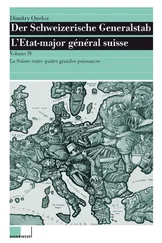That day, Monsignor Dorélien stood back to carefully observe the wonder in the little girl’s eyes. The girl actually sat down in a pew to watch the stained-glass-window makers and cleaners work. She was entranced, like she was at the cinema. Oh, how Monsignor Dorélien longed to see some of the perpetually in motion children in the neighborhood pause to do just that. With a wave of an arm, the monsignor caught the attention of a glass maker.
Natasha watched the woman scamper down the scaffolding. The woman was a girl not much older than Natasha. She was short and wore no makeup, denim overalls, and the sauntering self-confidence that comes with a history of successfully deploying God-given gifts. With the glow of a thousand sunlit shards of rainbow-colored glass behind her, the woman said, Hi, I’m Vanessa. Then she shocked Natasha by shaking her hand, as if Natasha was her equal. Vanessa offered to show Natasha how to do what she did: make and paint church windows with scenes of biblical stories and figures.
Go ahead, Monsignor Dorélien said to Natasha. Vanessa’s one of our brightest young painters. She’ll show you the ropes, if you’re interested. Young Natasha couldn’t believe her luck.
Today, almost a decade and an earthquake later, in the roofless and almost window-free ruins of the cathedral, Natasha saw Monsignor Dorélien half-buried under chunks of church walls fallen on the exact spot where she’d met the woman who taught her how to paint and sculpt homages to God.
In the refugee camp at Place Pigeon, Alain Destiné, Natasha’s wounded ex-boyfriend, alternated between looking forward to death and mainlining nostalgia for her love, until one night his life was saved by a white man. The night had been so black and gloomy that the darkness muffled the crackle of Alain’s fire. The camp had decided it needed a security force within days of its setting up a governing structure. No guns or knives were available, so a warm body armed with nothing more than a whistle would have to do. This night, it was Alain’s turn to be the camp’s night watchman. As the refugee camp in Place Pigeon had slowly morphed from a wreckage of the wrecked, terrified, and desperate to a loosely organized family of the wrecked, terrified, and desperate, small, interesting things had happened. The camp begat small plots of property, corridors with names, and a health clinic manned often by visiting foreigners and local student nurses and doctors, and also a restaurant, a church, a barbershop, a couple of beauty salons, a brothel, and even a small pharmacy and liquor store. Yes, the pharmacy and liquor store were one and the same. As they should be, Philippe said at the pharma-bar’s opening. Philippe, God bless his heart, had even tracked down a pot dealer who made regular visits to the camp. Alain Destiné, who had been a model of dull and curmudgeonly sobriety all his life, evolved into a dull and curmudgeonly pothead after the earthquake. If I had any talent for music I’d be on my way to becoming a Haitian Bob Marley right about now , he wrote Natasha in his diary one afternoon.
The night Philippe told him it was his turn to play police chief of Place Pigeon’s one-man police force, Alain went with the flow and assumed his responsibilities, as with everything in the passive existence he’d accepted after the earthquake. He accepted his turn in the rotation without protest in the name of solidarity with his ragtag group of new neighbors, even though he was one of the least physically able men or women in the refugee camp. Alain had a nonfunctioning leg with problems that had scared off visiting doctors. Malnutrition had left him without arm strength to swing a bat with any meaningful force, not that a baseball bat was available. (Christian, Philippe’s new contact at an aid agency who worked in procurement, had yet to come up with one bat for the camp. Apparently, demand was high. No shit.) This night Alain was meant to sit outside his tent and listen to the radio to scare off potential burglars and malefactors with a display of vigilance, insomnia, and sentient life. Yes, some people actually burgled refugees’ tents in Port-au-Prince after the disaster. Don’t ask Alain why. It was one of so-called God’s many fucking jokes. Ha-ha, very funny, motherfucker. There was nothing of value left to steal among these invalids, except people’s last shred of dignity and courage. Those commodities were at their lowest ebb. Haitians found facing the future to be exquisitely difficult after the most reliable thing they had ever known in their lives, the ground they stood on, had decided to violently betray them without warning. When it came to the thieves, Alain was actually forgiving. I guess some people clearly have habits that were hard to break even after an apocalypse, he thought. Even in hell those people will be around, looking to cut corners, Natasha would add if she had been by his side, sitting on the dirt, head on his shoulders while listening to his trembling whine and staring at the firelight. Alain tried not to think about Natasha too often. It was too disabling. The emotions her name generated in his heart were hot and ranged from desperate yearning to rage. His memories of Natasha were wonderful and dangerous and thus a distraction, a luxury he couldn’t avoid in the leadership thrust upon him by fate after the disaster. Besides, his love for her lacked purity. Purity was a new word to him. Even in business, Alain was never a numbers man. He was man of nuances, not blacks and whites. Shades of gray. Everyone and every problem was negotiable. And for what? What were you looking for back then, Alain? What returns on investment were so good that you channeled so much of your energy for them? What was the point of you?
Alain sighed, defeated by the presence of silence instead of answers. In fact, his head now hurt whenever he tried to think hard. Tea. He could use a cup of tea. With lots of milk and lots of honey. What’s that sound? Straight ahead and walking toward Alain were four men, two in each alley of tents. They were poking their heads in and out of tents of sleeping refugees. They were the land pirates of Port-au-Prince, and they had appeared out of thin air, like boogeymen, looking for bounty. The men were cloaked in darkness and they did their thieving with the assurance of soldiers wearing night-vision goggles in a desert. The whistle. Alain was supposed to whistle loud and high the minute he spotted intruders. The hope was the alarm would scare them into leaving the camp. In fear of what? As far as anyone could tell, the meager Haitian National Police had disappeared in the earthquake. The United Nations soldiers were there to work on their tans and protect shady political manipulations and not protect the lives of common men. Where the hell was that whistle? Alain patted the ground around him ever more frantically for a whistle that was actually tied around his neck. He knocked over a can. The fire shuddered.
The thieves turned toward Alain as one. They saw Alain and Alain saw them. Their leader, tall and light-skinned with feral teeth and a half-afro — a half-fro — walked quickly toward Alain, an index finger over his lips to order the crippled security volunteer to be quiet. Without breaking his stride, the man pulled a baseball bat from behind his back and proceeded to prepare to go Reggie Jackson on Alain’s head. It all happened fast, too fast for Alain to even think about screaming for help. Arms crossed over his face, Alain braced for the coming thump and the cracking of his skull… and death, yes, fresh-ass death. Darkness, his new friend. Alain put his arms down and turned his chin up toward the fast-coming fat end of the baseball bat. Then Alain heard a crunch, but felt nothing but the spray of a liquid across his face. He opened his eyes and saw a man, a white man, whack another marauder with a backswing of a baseball bat. What the fuck? Alain thought, How come everyone in this town has a baseball bat except me? The foreigner was clearly deft with a bat, so the last two thieves decided to abort their mission and sprinted out of the camp, damn near impaling themselves while jumping over its pale green fence before disappearing into the night. Alain’s unexpected savior watched them scamper with a faint smile of satisfaction on his face. It was a familiar face, lined and expressive even in repose. A dimpled chin, a forest of malleable hair. The man was handsome. Movie-star handsome.
Читать дальше












